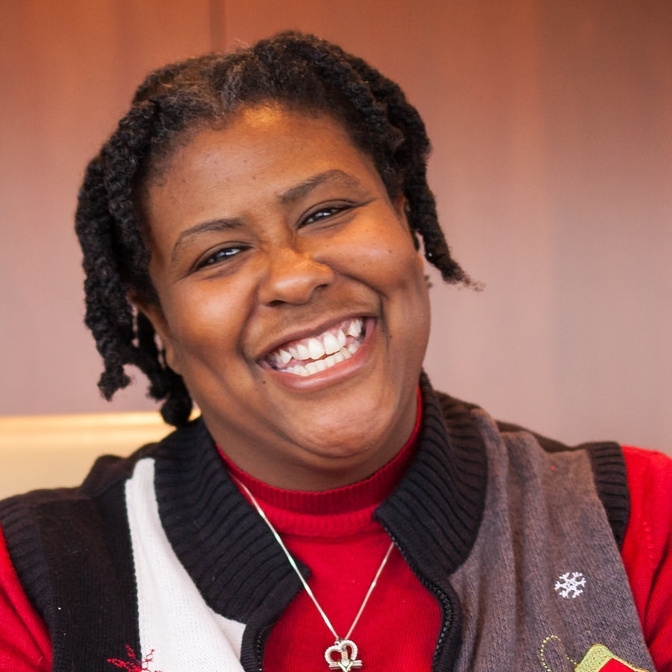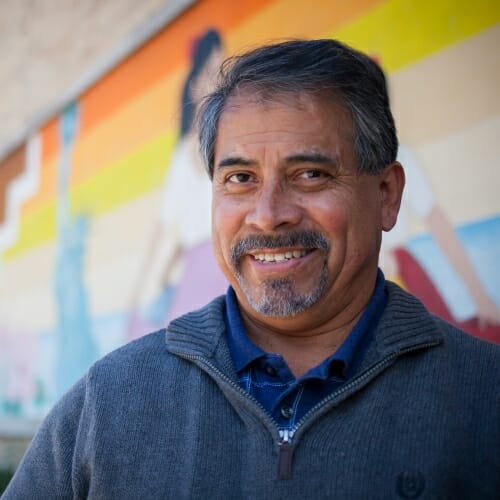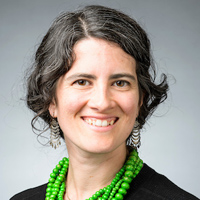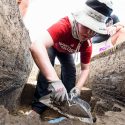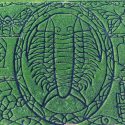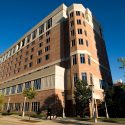Wisconsin Idea Seminar brings UW to state
The Wisconsin Idea Seminar will once again be hitting the road May 14-18 for this year’s Big Lake Tour.
The five-day immersive tour of the state helps UW–Madison faculty and academic staff engage with Wisconsinites, build relationships, and learn about the educational, industrial, social and political realities of Wisconsin.
“The Wisconsin Idea inspires much of our work at the University of Wisconsin–Madison,” said Chancellor Rebecca Blank in a letter calling for nominations, which must be received by the Provost’s Office by Feb. 15. “This foundational principle runs deep and is a consistent reminder that the teaching and research conducted here should serve the people of Wisconsin and beyond.”
Stops on the Big Lake Tour include a trip to the Kakagon Sloughs, the lush wetlands of Lake Superior’s southern shore.
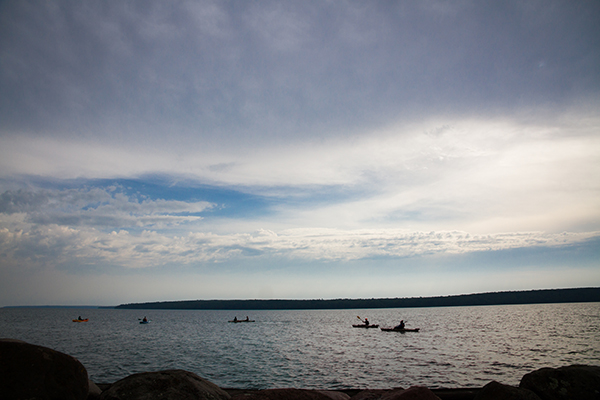
Kayakers head out on the placid waters of Lake Superior at Red Cliff, where the 2018 Wisconsin Idea Seminar will spend two of the four nights of the trip. Photo: Catherine Reiland
“Since 2016, water — in many of its forms — has served as the Wisconsin Idea Seminar’s loose narrative frame for our learning about Wisconsin. This year, for the Big Lake Tour, we are thrilled to get our group out on the water to experience one of Wisconsin’s natural gems,” says Catherine Reiland, director of the seminar. “We are grateful to tribal members of the Bad River Band of Lake Superior who will introduce us to the robust wild rice beds in the sloughs and who will guide our learning during this part of the trip.”
Participants will also be meeting and learning from Milwaukee-based community leaders and Latino and African-American families who are partnering around the creation of dementia-friendly communities in Wisconsin. The seminar will also learn from representatives of the UW School of Medicine and Public Health’s Wisconsin Alzheimer’s Institute and meet with caregivers and their families.
“We welcome everybody, but dementia is especially common among minorities,” says Gina Green-Harris, who directs the institute’s Milwaukee regional office. “There is the challenge of getting a diagnosis in a timely fashion, due to health care access, public understanding of the disease, and other diseases a person may have.
“A disproportionate number of folks of color get the disease, but we’re not sure why that is, so we’re trying to increase the number of African-Americans in research studies. And we’re doing things to reduce the risk or the impact of the disease, so we can have some quality of life along the journey.”
While visiting, Wisconsin Idea Seminar participants can look forward to hearing The Amazing Grace Chorus, which includes individuals who have Alzheimer’s disease, as well as their caregivers. The chorus project was created after a chorus program in New York showed that learning songs and singing helped to improve memory and mood.
“I can’t say enough about how the chorus has fostered a sense of community, belonging, for so many individuals,” Green-Harris says. “It’s an engaging social opportunity for individuals associated with our clinic.”
The seminar will also visit the United Community Center, hosted by Health Research Program Director Al Castro and his colleagues. Thousands of people benefit from the center, which focuses on serving the Latino population on Milwaukee’s south side. Castro plays an important role in advancing the missions and programs of the center, while also spreading the Wisconsin Idea as he connects people from the UW with UCC’s work.
“As a Latino professional dedicated to strengthening and empowering the Latino community of Milwaukee, I am delighted to be able to help facilitate a valuable educational field experience for UW faculty, so they can in turn supplement their classroom teaching with on-the-street community-based knowledge and contemporary experiences of culturally based services happening by Latinos and for Latino residents in our city,” Castro says.
Other highlights of the trip include visits to:
- Mystic Valley Dairy outside Sauk City
- Coloma Farms, fourth-generation potato and vegetable growers
- UW–Marathon County
- Abbotsford School District
Since its inception in 1985, more than 1,000 faculty and academic staff have participated in the Wisconsin Idea Seminar. Seminar alumni have a better understanding of the university’s partnership with the state and a deeper commitment to public service. Many return to campus inspired by the reach of UW–Madison across the state and the potential for leveraging their own expertise and talents to better the lives of Wisconsinites through mutually beneficial collaborations.
“The Wisconsin Idea Seminar owes so much of its success to the many, many generous people of Wisconsin who lend their time, expertise, knowledge, ideas and life experiences with our participants,” Reiland says.
“Last year, more than 60 collaborators across the state — including business owners, farmers, high school teachers, environmental stewards, artists, journalists — joined hands with the seminar to show our participants what the Wisconsin Idea can look like and to introduce us to the places that many of our UW students call home.
“And year after year, UW–Madison faculty and staff have shown a deep and genuine interest in learning about the state they serve. When they return from their five-day experience, they inspire their colleagues to follow in their footsteps and encourage them to take the journey across Wisconsin.”
The Wisconsin Idea Seminar is a program of the Office of the Provost and is made possible by the support of many UW–Madison divisions, schools and colleges, and the Evjue Foundation, the charitable arm of The Capital Times and long-time underwriter of the seminar since 1985.
For more information, visit https://wiseminar.wisc.edu.
Subscribe to Wisconsin Ideas
Want more stories of the Wisconsin Idea in action? Sign-up for our monthly e-newsletter highlighting how Badgers are taking their education and research beyond the boundaries of the classroom to improve lives.

